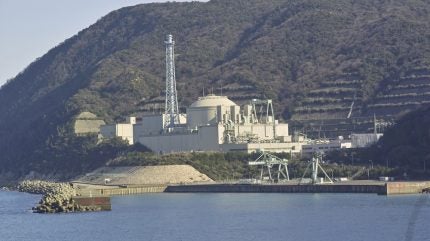
A panel of Japan’s nuclear watchdog has decided against restarting the number two reactor at the Tsuruga NPP citing safety concerns.
The Tsuruga plant is located close to the 4,000-year-old Urasoko fault-line where seismic shifts are more likely.
In 2011, a magnitude nine earthquake hit the north-east coast of Japan, causing the nuclear reactor in Fukushima to malfunction and leading to the largest nuclear disaster since Chernobyl. The Japanese Government has since not allowed nuclear plants to be located over fault-lines.
Due to the Tsuruga plant’s proximity to the fault-line – in addition to Japan being one of the most seismically active countries in the world – the panel deemed the number two reactor unsafe to be restarted.
The panel will submit a report to the Nuclear Regulation Authority (NRA), which will decide whether the reactor can restart.
Japan Atomic Power, the operator of the Tsuruga Power plant, will be forced to decommission its nuclear facility if the NRA denies its application for the reactor to be restarted. If this is the case, the company is set to request an additional review.
“We will conduct an additional investigation. We are not considering decommissioning the plant,” said Mamoru Muramatsu, the president of Japan Atomic Power, according to the Kyodo News Agency.
If the NRA is to deny the restart of the number two reactor, it will be the governing body’s first ever rejection of restarting an idled reactor under post-Fukushima regulations.
However, of the 33 reactors that were considered for restarting after the Fukushima disaster, only 12 have officially restarted. The NRA’s stricter safety standards since the incident have made the restarting of reactors more difficult.
The safety standards are in place to prevent disasters like Fukushima but could prevent the government from establishing a stable, secure and clean energy supply for the country.
If the number two reactor is decommissioned, Japan Atomic Power is expected to lose a large portion of its annual income.



